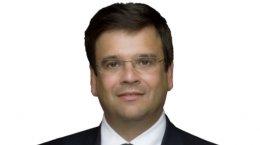India's Tata Steel, the world's No. 7 steelmaker, is looking at further acquisitions as it boosts capacity to meet booming demand at home and overseas, a senior official said on Thursday.
"Our portfolio will have a balanced mix of greenfield and acquisition," Indronil Sengupta, chief executive for Southeast Asia projects at Tata Steel, told Reuters on the sidelines of a Steel Business Briefing conference.
"Right now, we have Europe, Southeast Asia and South Asia and in terms of new operations, we're constantly looking into countries in terms of steelmaking and in terms of raw materials."
Tata Steel has a global capacity of around 30 million tonnes -- two-thirds of which are from its European unit Corus, a quarter from its growing Indian operations and the rest from units and joint ventures in Thailand, Singapore, Vietnam and the Philippines.
Tata Steel bought Corus, Europe's second-largest steelmaker, in 2007 for $13 billion, in the biggest overseas acquisition made by an Indian company so far.
Earlier this month, Tata Steel reported strong earnings for the September quarter on better demand and higher prices and said it would raise up to $1.6 billion in additional capital to trim debt and invest in its European business.
The company is in the process of securing clearances for a nearly 5-million-tonne integrated steel plant in Vietnam and is also working to boost its capacity in India, said Sengupta.
The steel project in the central Vietnamese province of Ha Tinh will make use of iron ore from a nearby mine, with the first phase expected to be completed in 2-1/2 to 3 years, he said. Tata Steel is taking a 30 percent equity stake in the mine and 65 percent interest in the steel plant, he added.
In India, capacity is expected to rise to 10 million tonnes in the near future from around 7.5 million tonnes currently, he said. Tata Steel will also build a 12-million-tonne a year steel plant in Jharkhand and other facilities elsewhere including in Orissa.
"India is a growing market and we will not lose our market share there. Our operations in India will grow," said Sengupta. Sengupta said he expects global steel demand to continue growing into 2011 as long as Asian economies remain strong, helping cushion any impact from further shocks in the euro zone.
"Asia is driving the growth today. China, India and Southeast Asia are not showing any signs, at least for now, of a dip. So as long as this part of the world is okay, it will keep the world afloat."





